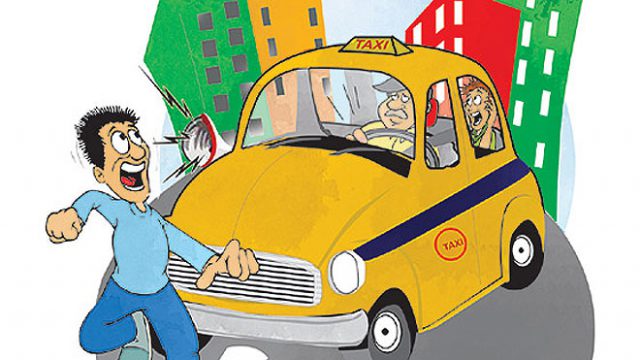If I were didi, I’d buy airguns. Thousands of them. And hand them out to every motorist in Kolkata. I’d have to yell, of course, and at Didi’s pitch, for the motorists are hard of hearing, poor things. (Which is also, perhaps, why they don’t quite appreciate the full import of Tagore’s ever-so-mellifluous songs trilling from every traffic light). The horn is a powerful thing, you see. It makes way; establishes the right order of things (buses first, burly taxis next, daredevil autorickshaws after that and so on); pitting high decibel against higher decibels or pitch. It also turns every unfortunate, blameless motorist and pedestrian in town deaf as a doorknob.
So when on a recent trip to the city, the cabbie brought the world crashing about my ears, honking a little over 120 times on a ten-kilometre stretch, I decided to lock horns with him. I had already tried telling him politely and then not-so-politely that the horn was not OK please. But surely, good reason wouldn’t go waste in a city that prides itself on diskashaan and deebate.
At first, words like necessity, time waste, other idiots on the road, are bandied about with much force and conviction. But there’s one argument that trumps them all. It’s a habit, he says. My habit, his habit (looking pointedly at the minibus screeching past us), everyone’s habit, didi! But how can you beat the traffic’s speed? Or coax a traffic jam to unravel by loud communal honking? “By the will of the horn”, he says, “and Lokenath Baba”, moving his head in slow motion to suggest just how forgone the conclusion is. Perhaps, it is a forgone conclusion. But if I were Didi, I’d definitely buy those airguns.




